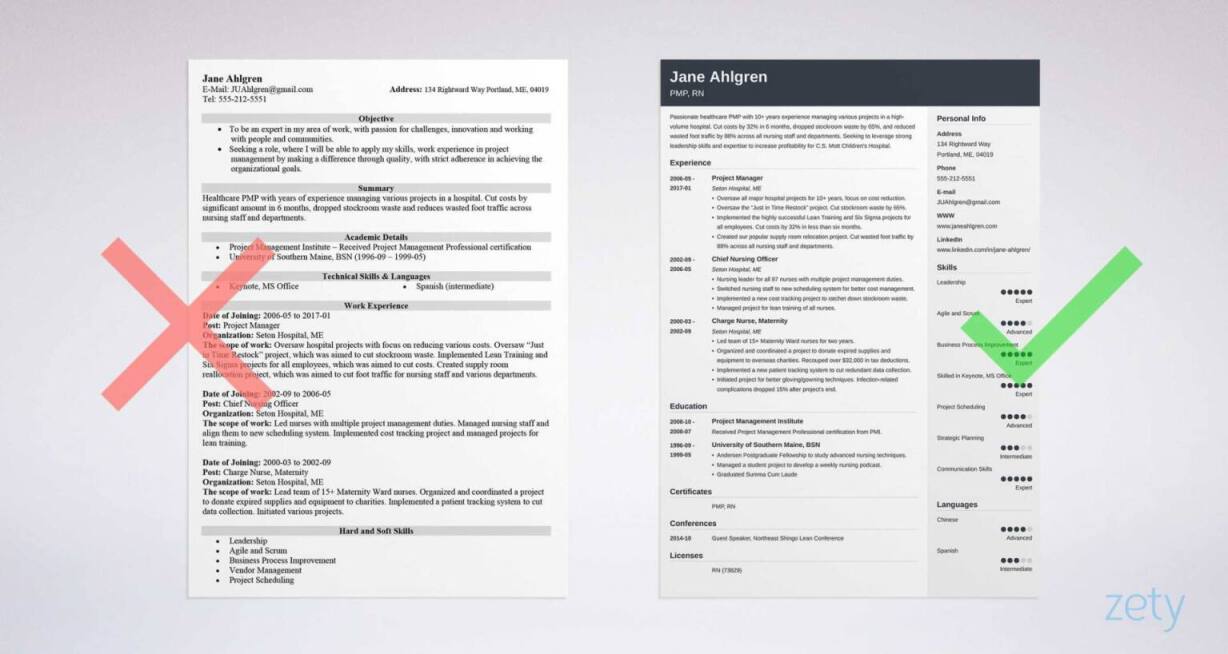References Available Upon Request on a Resume—Yes or No?
Create Your Resume NowYou're not sure whether you should put “references available upon request” on a resume. You’ve heard the phrase is outdated and pointless, and a resume faux pas can be disastrous. So, is there a better way to provide references?
Oh, yes. And you're going to learn it from this guide.
In this guide:
- What “references available upon request” on a resume means.
- Why concluding a resume with "references available upon request" is not a great idea.
- Where to put “reference available upon request” on a resume if you must include it.
Want to save time and have your resume ready in 5 minutes? Try our resume builder. It’s fast and easy to use. Plus, you’ll get ready-made content to add with one click. See 20+ resume templates and create your resume here.
Sample resume made with our builder—See more resume samples here.
Find our other resume guides here:
- How to Make a Resume for a Job Application
- Teen Resume Example
- Student Resume Example
- Internship Resume Example
- Career Change Resume Example
- Perfect Resume Examples For Any Job
What Does It Mean—“References Available Upon Request”?
“References Available Upon Request” is a phrase that was common at the bottom of resumes, and used in lieu of including a list of references attached to the resume. Nowadays, the phrase is an unnecessary piece of business jargon that wastes valuable resume real estate.
Read more: The Do's and Don'ts of Resume Writing
Should You Put “References Available Upon Request” On a Resume?
No, you shouldn’t put “references available upon request” on your resume. Career experts universally agree that the phrase is superfluous. One expert described it as a “one-line space waster”. Ouch.
Why isn’t the phrase helpful? Because hiring managers know that if they need references, they can ask and expect to receive them. If you close your resume with "reference available upon request", you'll make a recruiter think: “Thanks, Captain Obvious!”.
Another problem is that your resume should be one page long in most cases. That means if you want everything to fit on a one-page template, you need to trim any extraneous fat. That means “reference available upon request” doesn’t come close to earning a place at the table.
Read more: What to Put on a Resume?
Making a resume with our builder is incredibly simple. Follow our step-by-step guide, use ready-made content tailored to your job and have a resume ready in minutes.
When you’re done, our easy resume builder will score your resume and our resume checker will tell you exactly how to make it better.
“References Available Upon Request” vs List of References
It is a good idea to create a list of resume references from previous employers of who could vouch for your talents and experience. But you shouldn’t include the list on your resume (unless it’s specifically requested), because you want to know when your references will be contacted. Your references wouldn’t appreciate their contact information being on every resume you send to hundreds of employers. I know I wouldn’t.
By leaving your references off your resume, the hiring manager will have to let you know they are interested in contacting your references. That way you have time to give your references a heads up, letting them know to expect a call as well as any additional information you’d like for them to mention about your experience.
Read more: Best Resume Tips and Tricks
Where Do You Put “References Available Upon Request” On a Resume?
If you are convinced against all odds that you want to put “references available upon request” on your resume, the best place to put this phrase is at the very bottom of your resume. You don’t want the phrase to distract from your resume, and even if the hiring manager’s eyes miss it, no harm done.
It’s a good resume idea to use a footer to format a resume with “references available upon request”. This way it will take up even less real estate, leaving more for your skills section or work experience section—the parts of a resume that the hiring manager is actually looking for.
Read more: How to Format a Resume?
Key Takeaway
The answer is straightforward, you can confidently leave “references available upon request” off your resume even if you’re writing a traditional resume. There is no need to include this phrase, and you’re betting off using the extra line to fit in more work experience or skills on your resume.
There you go! Now you can get on to writing the rest of your cover letter!
Plus, a great cover letter that matches your resume will give you an advantage over other candidates. You can write it in our cover letter builder here. Here's what it may look like:
See more cover letter templates and start writing.
Thanks for reading! Do you have any other questions about “references available upon request” on a resume? Have you ever been asked to provide references? Share your experiences in the comment section below. We’d love to hear from you!
About Zety’s Editorial Process
This article has been reviewed by our editorial team to make sure it follows Zety's editorial guidelines. We’re committed to sharing our expertise and giving you trustworthy career advice tailored to your needs. High-quality content is what brings over 40 million readers to our site every year. But we don't stop there. Our team conducts original research to understand the job market better, and we pride ourselves on being quoted by top universities and prime media outlets from around the world.



